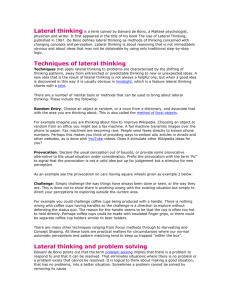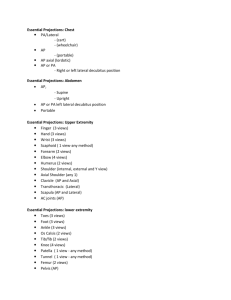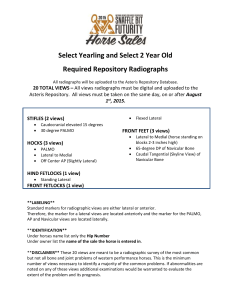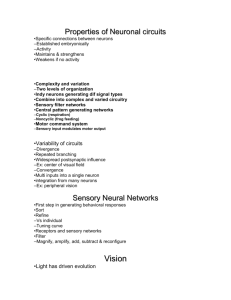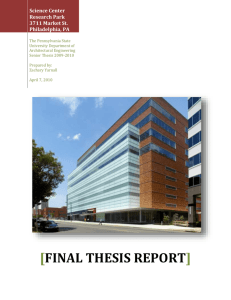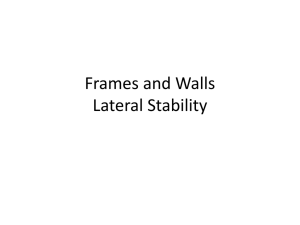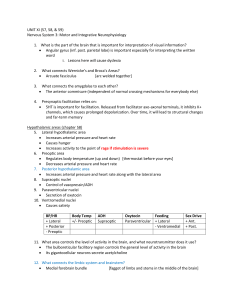lateral_thinking_presentation
advertisement
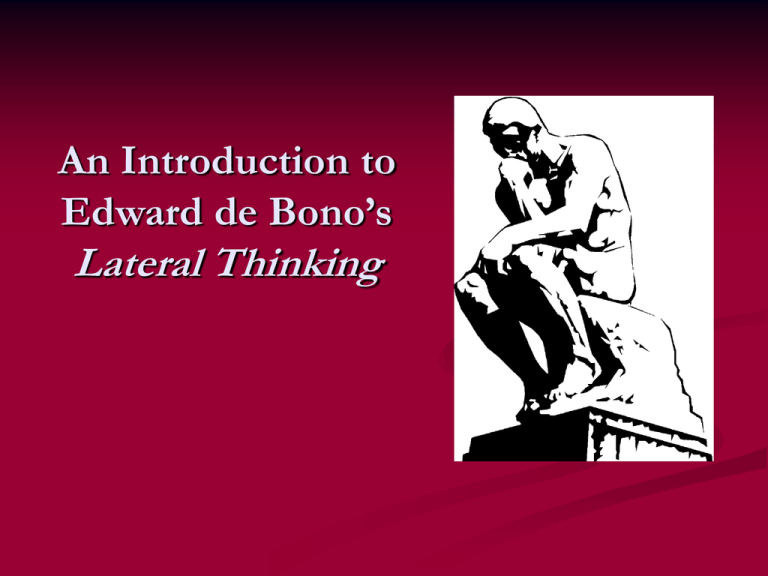
An Introduction to Edward de Bono’s Lateral Thinking How do you put on your clothes every morning? Bet you have a routine! What bread do you buy? If our brains didn’t filter information and categorize it, we would not be able to function. So what’s the problem? In a world of endless choices, businesses desperately need to differentiate themselves from their competitors. Are humans naturally creative? No. The self-organizing system of the brain guides humans along well-established trains of thought. And to make it worse… College Bound Students in Minnesota can expect to take which gateway tests? A. B. C. D. E. F. How do you succeed at this? G. H. I. MCA-II GRAD Component of the MCA-II BST EPAS NAEP PSAT SAT ACT All of the Above As a result, it’s easy for people to think of ideas and solutions that already exist. Completely new innovations and directions, however, are easy to overlook. Many believe that creativity can be attained simply through freeing people from their inhibitions. Yet, simply freeing a person does not mean that they have the capacity to be creative. Nor does it mean that they will consistently come up with new ideas that have the potential to be used. The market doesn’t wait for ideas to drop from the sky. In a highly-competitive world, businesses need proven, risk-adverse methods of generating innovation. Edward de Bono’s Lateral Thinking Methodologies fill that need. Who is Edward de Bono? M.D., Ph.D. (physiology, medicine, and psychology), Rhodes scholar World’s leading authority in the field of creative and conceptual thinking Originator of Six Thinking Hats, Lateral Thinking, and Direct Attention Thinking Tools (based on CoRT) Author of over 70 books in 35+ languages What is Lateral Thinking? C “In a self-organizing information system, patterns are formed. Lateral Thinking is a method for cutting across patterns. It is for changing concepts and perceptions.” -Edward de Bono A B Translation… Lateral Thinking is a series of formal tools designed to improve creative thinking abilities in everyone. It can be used to: • solve problems companies could not otherwise solve • create a more innovative organization, and • fully utilize the assets companies already have, especially the minds of managers and employees Using Lateral Thinking allows individuals and organizations to generate new ideas deliberately and purposefully As a result, creativity can now be used to achieve competitive advantages in an increasingly global marketplace.
